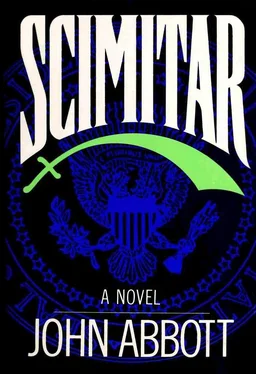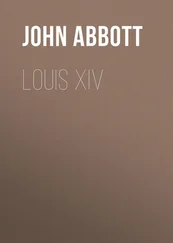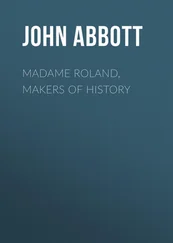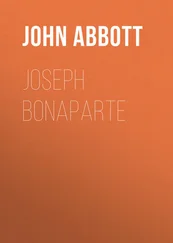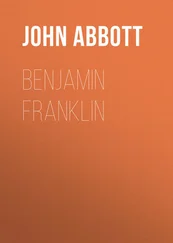STANDARD TIME ZONE EQUIVALENTS AT FCO OVERSEAS POSTS WHEN 12 NOON (GMT) IN LONDON
The letters GMT stood for Greenwich Mean Time.
The letters FCO stood for Foreign Consular Office.
The FCO for which Geoffrey worked here in New York was called the British Consulate-General, and it was located on the ninth floor of an office building on Third Avenue, between Fifty-first and Fifty-second streets. From Geoffrey’s corner office, he could look south for quite a ways downtown, and he could also look west across Third Avenue to the front of the Seventeenth Precinct across the street. He was, in fact, looking east this morning, if spiritually rather than actually; he was consulting the printed Overseas Posts chart to ascertain what time it was in Kathmandu.
It was now 9:00 A.M. on a bright Monday morning, the twenty-second of June. Adjusting for Daylight Savings Time, which had last month sprung the clocks ahead both here and in London, Greenwich Mean Time was now 2:00 P.M., which made it 6:40 P.M. in Kathmandu, which did not adjust its clocks to suit the seasonal fashions, and which was rumored to be the second worst foreign post to which a person could ever be assigned.
At 5:00 P.M. Kathmandu time, Alison would have taken her leave of Snuffy, as Her Majesty’s Consul-General there was familiarly called (although his proper name was Sherwood Spencer Hughes), and would by now be showering and dressing before leaving for dinner at either the Del Annapurna or the Soaltee Oberoi, both five-star hotels. He would give her a bit more time to put on the finishing touches, and then he would call her at 10:00 A.M. sharp here in New York, which would catch her at 7:40 P.M. before she left her apartment. There in the shadow of the Himalayas, they dined late.
The worst foreign post, of course...
Well, actually, there seemed to be several.
Saudi Arabia. Oh, dear Lord, the stories he had heard about that place! Or the Ivory Coast. And long-time foreign servants had told him it was a toss-up between Ceylon and Ulan Bator as to which was the most utterly boring. But they all agreed that Dakar had to be the absolute worst in the world, perhaps the entire uni—
The telephone rang.
For a brief delirious moment, he imagined it might be Alison calling him !
He turned from the bulletin board and the benign gaze of Queen Elizabeth staring at him from a poster above it, snatched the receiver from its cradle, and said somewhat breathlessly, “British Consulate, Turner speaking.”
“Yes, hello,” a man’s voice said. Nasal and veddy veddy British. A Colonel Blimp adrift in Manhattan, the first Distressed British National of the week.
“Yes, sir, how may I help you?” Geoffrey asked.
Three minutes past nine on a Monday morning, and already a DBN on the line.
“Yes, hello, can you hold a moment, please?” the man said.
“Certainly,” Geoffrey said, and waited.
And waited.
And waited.
He was about to hang up when the man came back on the line.
“Yes, sorry,” he said, “my wife was bending my ear. What I need to know, young man...”
Geoffrey wondered how the man knew he was young.
“... is how a person would go about establishing residency in the U.K., do y’follow me?”
“Are you a British national, sir?” Geoffrey asked.
“I am indeed. Born and bred in Manchester.”
“Then, sir, why would you need...?”
“No, no, this is for a friend of mine,” the man said. “A Yank. Plans to move to Kent, lovely spot, d’you know it? Hawkhurst? Quite lovely.”
“Yes, sir, quite lovely indeed.”
“My friend’s sixty-seven years old, been retired for some time now. Can you tell me what the requirements would be?”
“To apply for entry clearance as a person of independent means?”
“Well, yes, I should imagine that’s what he’d be. Is that what you call it? A person of independent means?”
“Yes, sir. If, in fact, that’s what he is. In which case, he would need to prove that he has under his control, and disposable in the U.K., a sum of not less than a hundred-and-fifty thousand pounds...”
“That much, eh?”
“Yes, sir, or income of not less than fifteen-thousand pounds a year.”
“I should imagine he gets at least that much in retirement pensions, shouldn’t you think? Fifteen-thousand pounds?”
“I have no idea, sir.”
“Well, I shall have to ask him then, shan’t I?”
“Yes, sir, that would seem a good idea. And then, if he wishes to apply, he can write to this office for the proper forms.”
“Thank you so very much, young man. You’ve been most helpful.”
“Happy to’ve been of service, sir,” Geoffrey said, and put the receiver back on its cradle, still wondering how the man had known he was young . Something in his voice? His telephone manner? Surely, if the DBN had been standing here before him, looking at him across the desk, he’d have seen nothing about Geoffrey to indicate he was but twenty-four. For this was no callow-faced pimply youth growing a sparse mustache in a vain bid for maturity. Rather, here were the lean good looks of someone whose forebears were part Welsh and part Scottish, the smoldering dark eyes, the high cheekbones and thrusting jaw, the thick black hair, somewhat tousled now at a quarter past nine in the—
The telephone again.
He picked up the receiver.
“British Consulate,” he said, trying to make his voice deeper. “Turner here.”
Another DBN, a woman this time, reporting that her handbag had been stolen, along with all her money, her credit cards, and her passport. Not an unusual distress call. Geoffrey took at least one of these every day of the month, more of them in June, which was the busiest month. He asked the woman where she was staying, gave her the telephone number of the police precinct closest to her, and advised her to report the crime there and then to come directly here to file an application for a new passport.
He hung up wondering whether the stolen passport activity was heavier in a city like Chicago or Houston. Detroit. That was probably the worst of the lot, but there wasn’t a British Consulate there. New York was a choice post, he still marvelled at the good fortune that had landed him such a plum as his second assignment. First crack out of the box had been Dublin, but one didn’t join the foreign service to be sent directly around the corner.
He had entered the service as a vice consul at the age of twenty-two, with a good university degree — a first in History, actually — and coming in as a Grade-9, which paid a starting salary of twelve-thousand quid a year. This had been more than enough in Dublin, one could live there like a king on that amount of money. Here in New York, though, where he was living “on-Manhattan” as opposed to somewhere in the boonies, everything was much more expensive, and he could barely make ends meet at thirteen-five, his new Grade-8 salary.
And he had to admit that the glamour of the city sometimes paled beside the incessant tiresomeness of the daily routine here in the Passport and Visa Section. Process some thirty-thousand visas annually, and another thirteen-thousand passports, and one could with justification call the repetition deadly dull. And when it got to be June, as somehow it always did, one might say the routine became numbing. He sometimes felt that if he never saw another Pakistani, Bangladeshi, Ghanaian, Indian, or Afghan applying for a visa to—
And yet, there were times when New York...
Well, not now. Certainly not now. The temperature had been insufferably hot since the beginning of the month, and now that the expected humidity was here — the Yank forecasters quaintly called it the Three H’s, for Hazy, Hot & Humid — there was no relief except out at the Hamptons, which seashore required hours of motoring to reach and tons of money to enjoy. He wondered abruptly if there was a chance in hell that Alison would join him on her holiday. He would ask her again tonight, when he—
Читать дальше
